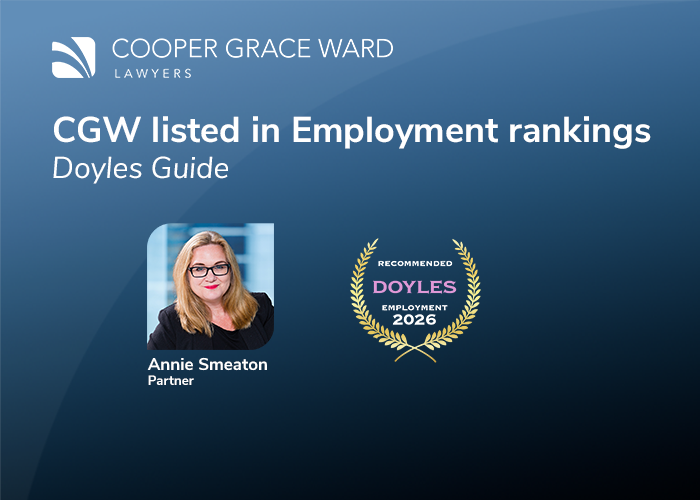What trusts will be able to have a life of 125 years?
The new extended perpetuity period can apply to:
- all types of trusts (for example, family/discretionary trusts, unit trusts, fixed trusts, bare trusts)
- both new trusts and existing trusts
provided the trust is governed by Queensland law. This will require the trust to have some connection to Queensland, such as a Queensland based trustee, Queensland based beneficiaries or Queensland based assets.
Where the trust is governed by the laws of any other state or territory, the maximum perpetuity period will remain 80 years (except for in South Australia).
Does my trust deed matter?
Yes, because most trusts include specific clauses that require the trust to end (or vest) on or before the end of the perpetuity period.
When setting up a new trust, your trust deed can allow the trust to run for a maximum of 125 years where Queensland law applies. From 1 August 2025, trust deeds prepared by Cooper Grace Ward and CGW Structures will use a perpetuity period of 125 years where Queensland is selected as the jurisdiction. If you use another deed provider, you should check that the trust deed will allow for the extended perpetuity period, especially where the provider is based interstate.
For existing trusts, to access the new 125-year life, the trust deed will likely need to be amended. This must occur before the current end date set out in the trust deed.
Can I amend my trust deed to extend the perpetuity period to 125 years?
If the trust deed’s variation power is broad enough, the trustee of the trust can vary the trust’s life by changing the end date to 125 years.
If the trust deed’s variation power is not broad enough, then it may still be possible to extend the end date to 125 years in one of the following ways:
- the Property Law Act 2023 specifically allows the trustee to extend the end date with the consent of all of the adult beneficiaries of the trust. Given the breadth of beneficiaries in most family/discretionary trusts, this will be impractical. However, for some trusts with more limited beneficiaries this will be a cost-efficient option; or
- the trustee can apply to the Supreme Court of Queensland for an order to extend the end date of the trust.
However, if you need to rely on either of these options, you should first obtain expert tax advice to ensure that no adverse tax consequences are triggered.
What do I do now?
Trustees and advisers of trusts should:
- review the trust deeds for existing trusts to ensure that they are aware of the existing end date;
- check with their deed provider to ensure that they will get the benefit of the new 125-year perpetuity period for new Queensland trusts established from 1 August 2025; and
- if necessary, look to extend the end dates of existing trusts to take advantage of the additional 45-year lifespan.
Please contact one of our team if you would like advice about the ability to extend the end date for a trust. We can also assist you in preparing a variation deed to extend the end date of a trust.









